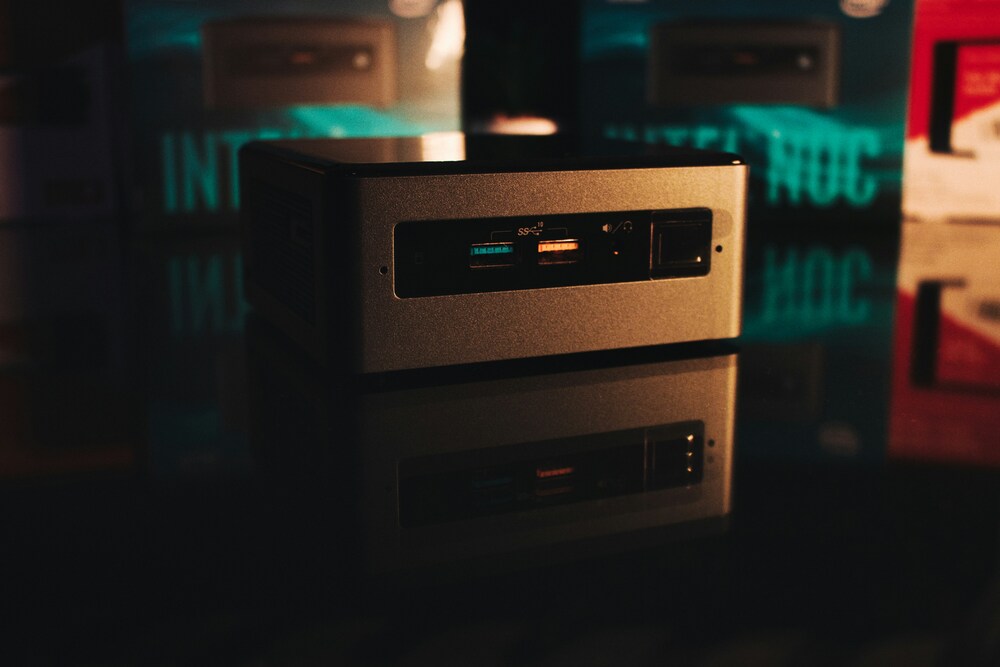- Home
- Articles
- Architectural Portfolio
- Architectral Presentation
- Inspirational Stories
- Architecture News
- Visualization
- BIM Industry
- Facade Design
- Parametric Design
- Career
- Landscape Architecture
- Construction
- Artificial Intelligence
- Sketching
- Design Softwares
- Diagrams
- Writing
- Architectural Tips
- Sustainability
- Courses
- Concept
- Technology
- History & Heritage
- Future of Architecture
- Guides & How-To
- Art & Culture
- Projects
- Interior Design
- Competitions
- Jobs
- Store
- Tools
- More
- Home
- Articles
- Architectural Portfolio
- Architectral Presentation
- Inspirational Stories
- Architecture News
- Visualization
- BIM Industry
- Facade Design
- Parametric Design
- Career
- Landscape Architecture
- Construction
- Artificial Intelligence
- Sketching
- Design Softwares
- Diagrams
- Writing
- Architectural Tips
- Sustainability
- Courses
- Concept
- Technology
- History & Heritage
- Future of Architecture
- Guides & How-To
- Art & Culture
- Projects
- Interior Design
- Competitions
- Jobs
- Store
- Tools
- More
Importance of Hardware Support for Production Plants

Table of Contents Show
- Enhancing Operational Efficiency
- Preventive Maintenance
- Real-Time Data Processing
- Automation and Control Systems
- Minimizing Downtime
- Preventive Maintenance
- Rapid Troubleshooting and Repairs
- Data Security and Integrity
- Secure Data Storage
- Data Backup and Recovery
- Supporting Advanced Technologies
- Key Hardware Requirements
- Ensuring Seamless Integration and Performance
- Enhancing Scalability and Flexibility
- Modular Hardware Solutions
- Support for Hybrid Environments
- Conclusion
- FAQs
Many industries today rely on digital technologies to enhance their performance. This is why hardware servers and support may be useful for many sectors. In production plants, where productivity, dependability, and availability are crucial, sound hardware support is not merely advantageous but imperative.
The use of sophisticated technologies in manufacturing has benefits that range from improving organizational performance to reducing time loss and protecting information. This article discusses the significance of hardware support for production plants and the critical role it plays in their success.
Enhancing Operational Efficiency
Manufacturing facilities have very rigid production timelines, with a constant demand for improvement of production lines and minimization of costs. These goals can be achieved with advanced hardware support, including reliable and efficient computing equipment.
Preventive Maintenance
Sophisticated hardware solutions are almost always equipped with diagnostic tools and monitoring features that allow for predictive and preventive maintenance. Used hardware modules can also be repurposed to enhance a company’s digital operations. A refurbished Dell server is among the best hardware for detecting critical conditions in digital components and can help solve problems before they turn into failures. This proactive strategy significantly reduces the likelihood of unplanned outages and extends the useful life of essential assets. refurbished dell server.

Real-Time Data Processing
Real-time information is an essential element of almost any production facility today. Equipment with powerful processors and extended memory facilitates the reception and processing of data from various sensors and control systems. This capability enables real-time adjustments to enhance process effectiveness and output.
Automation and Control Systems
Automation is the lifeline of modern production facilities. Complex control systems with solid hardware enable the control of automated equipment and robotics. Reliable hardware support ensures that these control systems run continuously, which is essential for accurate and consistent manufacturing processes.
Minimizing Downtime
In a production plant, this could lead to significant revenue loss and extended product delivery times. Maintaining reliable hardware support is crucial to preventing disruptions that can hinder operations.
Preventive Maintenance
Sophisticated hardware solutions are almost always equipped with diagnostic tools and monitoring features that allow for predictive and preventive maintenance. Detecting critical conditions on the hardware components can help solve problems before they turn into failures. This proactive strategy significantly reduces the likelihood of unplanned outages and extends the useful life of essential assets.
Rapid Troubleshooting and Repairs
When hardware issues occur, having direct hardware support implies that the issues will be diagnosed and sorted out promptly. Help desks can help, either from a distance or on the scene, to get production systems back into production. It is necessary to respond quickly to those failures in order to prevent significant disruptions on production lines.
Data Security and Integrity
Production plants generate and process large volumes of data, including production output and other proprietary information. Maintaining the confidentiality and integrity of this data is essential, and hardware support plays a key role in achieving this.

Secure Data Storage
Industrial hardware servers typically have sophisticated security measures such as encryption, access control, and flexible backups. These features protect data from external and internal threats, including unauthorized access, corruption, and data loss, which are crucial to an organization.
Data Backup and Recovery
Whenever hardware fails to perform optimally, it is always important to have a backup and a recovery solution in place. These services often include data backup and disaster recovery, which are typically part of hardware support. This ensures that production data can be easily backed up, minimizing the impact of any disruption and enhancing data recovery.
Supporting Advanced Technologies
Recent innovations such as IoT, artificial intelligence, and machine learning have transformed production plants. These technologies help to work faster, diagnose problems in equipment and systems before they arise, improve product quality, and make better decisions. However, maximizing these advantages requires proper hardware support to ensure the effective functioning of these technologies and compatibility with existing infrastructures.
IoT Integration
Smart grids have become popular in manufacturing facilities plants, which use IoT devices to monitor equipment, track inventory, and improve various procedures in production lines. These devices continuously generate large volumes of data that must be analyzed and acted upon in near real-time. A strong hardware foundation is crucial for IoT systems to operate smoothly and fulfill their computing and storage functions. This spans from servers that can manage heavy traffic, and end nodes that can support analytics on real-time data.
Benefits of IoT Integration:
- Real-time monitoring and control
- Predictive maintenance
- Improved resource management
- Enhanced production efficiency
Artificial Intelligence and Machine Learning
Machines also use AI and ML solutions in production, communicating when they need repairs, and checking for defects in products. These applications consume enormous computational power and require robust hardware to support intensive algorithms and data processing. Hardware support enhances the effectiveness of AI and ML systems, helping to achieve greater efficiency and improvements in the production process.
Benefits of AI and ML Applications:
- Enhanced decision-making
- Automated quality control
- Predictive analytics for maintenance
- Process optimization
Key Hardware Requirements
As a result, it is crucial for production plants to partner with system integrators to facilitate the necessary integration of IoT, AI, and ML by acquiring suitable hardware. The following outlines the key hardware requirements for these advanced technologies:
| Technology | Key Hardware Requirements | Description |
| IoT | High-Performance Servers | For processing and analyzing large volumes of data generated by IoT devices in real time. |
| Edge Computing Devices | For local processing of data close to the source, reducing latency and bandwidth usage. | |
| Reliable Network Infrastructure | To ensure seamless connectivity and communication between IoT devices and central systems. | |
| AI | Powerful GPUs (Graphics Processing Units) | For handling complex computations required by AI algorithms. |
| High-Capacity Storage Solutions | To store vast amounts of data necessary for training AI models and running simulations. | |
| High-Speed Data Transfer Capabilities | To facilitate rapid data movement between storage and processing units. | |
| ML | Dedicated ML Hardware (e.g., Tensor Processing Units – TPUs) | Specialized hardware designed to accelerate ML workloads and improve efficiency. |
| Scalable Computing Resources | To handle varying loads and support large-scale ML model training and inference. | |
| Robust Data Management Systems | To manage and curate datasets required for training and deploying ML models. |
Ensuring Seamless Integration and Performance
It is important to note that implementing these advanced technologies in production plants comes with its own challenges. To achieve this it needs constant management, a great hardware foundation, and most importantly, great engineering.

Scalability: The hardware must be scalable and designed to handle a large number of IoT devices as well as the computational needs of AI and ML.
Compatibility: Another key factor to consider is the compatibility of the new systems with the existing ones. Hardware should be interoperable in order to allow integration.
Reliability: High reliability is required in production environments. Hardware parts must be reliable and able to withstand the harsh environment in industrial settings.
Security: The security of information is crucial. The hardware solutions should incorporate more enhanced security to protect the data and to avoid or minimize access from unauthorized individuals.
Enhancing Scalability and Flexibility
Successful production plants must be capable of responding to new pressures and adjusting the output accordingly. Justifiably, robust hardware support delivers the scalability and versatility needed to address such issues.
Modular Hardware Solutions
Most contemporary hardware systems are highly flexible and adaptable for modularity to accommodate different production plant requirements. This makes it possible for plants to install or uninstall computing resources depending on the current utilization for maximum performance with little to no waste.
Support for Hybrid Environments
Since many production plants are now using on-premises equipment along with cloud-based solutions, having equipment that can effectively link these structures is critical. This integration makes it possible to have more flexibility in workload management while at the same time guaranteeing that production plants can benefit from both onsite and cloud computing.
Conclusion
Therefore, hardware support for production plants is of extreme significance. Everything from improving productivity and reducing downtime to the protection of data and embracing new technologies; sound hardware support is the key ingredient that defines the performance of contemporary manufacturing plants. Effective hardware systems and support services enable the actualization of increased productivity and adaptability of production plants in today’s volatile and complex market environment.
Currently, the application of digital technologies is mandatory in industrial processes, and, in this context, hardware support is not only associated with maintenance. It includes managing, planning and being able to transform in light of new technology. Manufacturing plants, that understand the significance of hardware support, or strive to achieve it, adapt much easier to the requirements of the contemporary production world, foster innovation, and stay relevant.
FAQs
- What kinds of equipment are critical to implementing IoT in production facilities?
The main hardware for the integration of the IoT is high-performing servers to analyze the real-time data, edge nodes, and devices to process the local data and a stable network for proper interconnectivity with the IoT devices and central systems.
- How does hardware support the improvement of AI and ML applications in production plants?
Secure and rich hardware resources make AI and ML applications more effective by means of powerful GPUs for computations, big storage for data, and specific devices like TPUs to improve the effectiveness of ML calculations, including training and evaluation.
- What is the first advantage of having extensive hardware support in production plants?
Some of the benefits of strong hardware support are as follows; Hardware support in production plants means efficient production, less or no downtime, increased security, easy integration of modern technologies such as IoT, AI, and ML, and overall ability to accommodate production in line with changes demanded in the production line.
illustrarch is your daily dose of architecture. Leading community designed for all lovers of illustration and drawing.
Submit your architectural projects
Follow these steps for submission your project. Submission FormLatest Posts
How to Store Equipment in a Small Farm
Table of Contents Show Maximizing Vertical SpaceCompact TractorsCreative Outdoor SolutionsGrouping Similar ToolsInventive...
Understanding Structural Diagrams in Architecture: Load, Logic, and Form
Structural diagrams translate the invisible forces inside a building into clear visual...
Top 10 Examples of Modern Vernacular Architecture Around the World
Explore 10 outstanding modern vernacular architecture buildings from six continents, including works...
How to Plan a Fun Birthday Party at Your Home
Table of Contents Show Theme SelectionBouncy Castle RentalInvitationsFood and DrinksActivities and GamesDecorationsParty...












Leave a comment